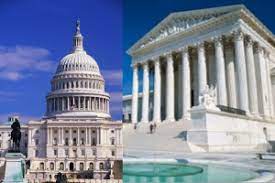Energy
Climate Change in the Law School Curriculum
What role will the subject play in the curriculum of the future?
Someone asked me recently what I thought law schools should be teaching about climate change. Naturally, my first reaction is that everyone everywhere needs to put climate change at the top of their agenda. As usually happens, when I got past that gut reaction, things got more complicated. There are many important societal issues that …
Continue reading “Climate Change in the Law School Curriculum”
CONTINUE READINGThe Fuss about Methane
Part 1: Science and weird facts
Methane is getting a lot of attention in climate debates. There was even a “Methane Day” last Tuesday at the climate conference in Glasgow. Several new regulations controlling methane emissions have been adopted recently, including two new rules for the US oil and gas sector announced last week. There’s a new informal international agreement to …
Continue reading “The Fuss about Methane”
CONTINUE READINGThe Climate Bill inside the Infrastructure Bill
The US takes a major step forward on the path to carbon neutrality.
Late Friday, the House passed Biden’s infrastructure bill. As the Washington Post aptly observed, the bill is the biggest climate legislation to ever move through Congress. It also attracted key support from some Republicans, which was essential to passing it in both houses of Congress. Biden is pushing for an even bigger companion bill, but …
Continue reading “The Climate Bill inside the Infrastructure Bill”
CONTINUE READINGA Bad Week for Biden, and for Climate Action
First House progressives, and next conservative Justices, poked a stick in the spokes.
President Biden hoped to go to the international climate summit in Glasgow with momentum behind him. He wanted to reestablish US credibility with concrete progress on climate change. Instead, the ability of the US to take action on climate change is shrouded in doubt. Biden suffered an embarrassing defeat at the hands of members of …
Continue reading “A Bad Week for Biden, and for Climate Action”
CONTINUE READINGThe Shock of the Global
What the current fossil fuel energy crisis means for climate and clean energy policy
Pick up any newspaper and it is clear that much of the world is experiencing a series of interrelated energy price shocks. In Europe and the UK, natural gas prices are up by more than 500% over the last year, hitting all-time highs earlier this month. In the US, even with abundant supplies of natural …
Continue reading “The Shock of the Global”
CONTINUE READINGNorth Carolina’s New Climate Legislation
A major, bipartisan step forward in an unlikely state.
Last week, North Carolina Governor Roy Cooper signed an important piece of climate legislation. I wrote last month about major, bipartisan climate legislation in Illinois. Like the Illinois law, the North Carolina law enjoyed broad bipartisan support. The North Carolina legislature is under firm Republican. Nevertheless, the bill passed the state senate by a 42 …
Continue reading “North Carolina’s New Climate Legislation”
CONTINUE READINGReport from Planet X
Help, our energy system screwed up our planet!
A long time ago, in another galaxy far far away . . . . Dear Galactic Governance Collaborative, Those of us who colonized Planet X now find ourselves in dangerous straits. We request urgent assistance due to escalating environmental instability. You’re thinking it’s not easy to screw up an entire planet. You’re right about that. …
Continue reading “Report from Planet X”
CONTINUE READINGDear 1L . . . .
Welcome to law school. You’re just in time to help save the world.
Dear 1L: You’ve gotten to law school at a crucial time for the future of the planet. The good news is that you’re arriving at a pivotal point when your work as a lawyer can make a big difference. The bad news is that we have a limited amount of time to get the situation …
Continue reading “Dear 1L . . . .”
CONTINUE READINGGreening the Land of Lincoln
Illinois passes pathbreaking energy law.
Last week, Illinois’s governor signed into law a major piece of climate legislation. The law deserves more attention than it has received. Sadly, however, Illinois seems to be something of a neglected stepchild in the media. That’s a pity, because there are some important lessons in Illinois’s experience, both for the Midwest and the country …
Continue reading “Greening the Land of Lincoln”
CONTINUE READINGTop 10 Biggest Environmental Wins In California’s History
Ranking the victories that saved priceless landscapes and environmental features
California is generally known as an environmental leader, but the state has also faced tremendous environmental degradation and destruction. I chronicled my “top 10” worst environmental decisions in the state’s history last year. But what about the good things state policy makers have done? Here is my list of the most significant environmental wins in …
Continue reading “Top 10 Biggest Environmental Wins In California’s History”
CONTINUE READING













